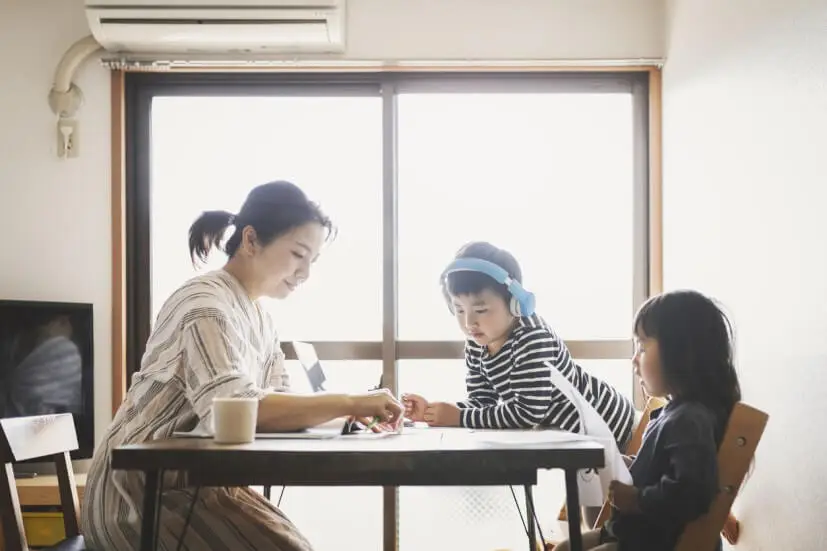How to Mentally Prepare for the Day Your Child Leaves the Nest

It is not without reason that parenthood is often described as a life-altering event. Even before our child is born, we develop a bond that only grows stronger with their growth. They soon become the centre of our world – reaching new milestones that never fail to make our day.
At the same time, many of us find ourselves compromising our own needs as we channel most of our energies towards looking after them and providing them with our best. As the saying goes, the days are long, but the years are short, and before we know it, our kids are all grown up and ready to take flight from the nest.
It is not without reason that parenthood is often described as a life-altering event. Even before our child is born, we develop a bond that only grows stronger with their growth. They soon become the centre of our world – reaching new milestones that never fail to make our day.
At the same time, many of us find ourselves compromising our own needs as we channel most of our energies towards looking after them and providing them with our best. As the saying goes, the days are long, but the years are short, and before we know it, our kids are all grown up and ready to take flight from the nest.
The Difficulty of Adjusting to Being an Empty Nester
For me, having been kept occupied with raising my two children for over a decade and a half, I never really thought much about the day when my children would leave the nest until the day my son – the older of the two – eventually left home for his university studies. It was difficult adjusting to a home without my son, as with his presence, our home was always abuzz with his pranks and peals of laughter.
When he left, I felt a sense of emptiness and realised that in a couple of years’ time, it would be my daughter’s turn to leave too. Imagining a home with just my husband and I, without our children under the same roof, was a thought that was quite upsetting for me.
You see, as a housewife, my life has always primarily revolved around my husband and children. As such, my kids leaving the nest would result in emptiness and a loss of purpose. However, the voice at the back of my head knew that they had their own lives to live and dreams to fulfil.
With the help of my daughter, my husband and I were able to prepare ourselves for a life when our children would no longer be living with us. Heeding her advice, we began to look for ways to keep ourselves productively engaged. I reconnected with old friends and kept myself busy with old hobbies like gardening, while my husband joined a yoga studio nearby. This eventually helped us to change our outlook towards the future where my husband and I were to dwell in an empty nest.
If this day is just around the corner for you, here are some tips that might help you with the transition.
Embracing the Next Chapter: Navigating the Empty Nest Transition
Here's how parents can navigate this transition effectively, focusing on emotional support, communication, home environment, financial planning, and personal growth.
1. Emotional support for parents
The shift to an empty nest can stir a whirlwind of emotions for parents. It's a significant transition as you adapt to a quieter home and a different daily rhythm. Understanding and navigating these emotional changes is crucial for your well-being.
- Acknowledge your feelings: It's normal to experience a range of emotions when your child leaves home. Allow yourself to feel sadness, pride, relief, or confusion. These feelings are a natural part of the transition.
- Seek support: During this transition, support from others can be invaluable. Reach out to friends, family members, or professional counsellors for emotional support. Sharing your experiences with others who have gone through similar transitions can be incredibly comforting.
- Create new routines: When your child leaves home to embark on their own journey, it means a shift in your daily routine. Embrace this change by establishing new routines and rituals that focus on your personal well-being and interests. New routines not only help structure your day but also provide opportunities for personal growth and happiness.
2. Nurturing relationships after the nest empties
Adjusting to an empty nest also means redefining your relationship with your children. This phase presents an opportunity to evolve from a daily caregiver to a supportive guide as they navigate adulthood. It's a balancing act between staying connected and respecting their independence. Here's how you can maintain and grow your relationship with your children after they've left home:
- Maintain regular contact: Keep the lines of communication open with your children. Regular check-ins via calls, texts, or video chats can help maintain a strong relationship without infringing on their newfound independence.
- Foster open dialogues: Encourage open and non-judgmental conversations. Be a listener and a guide, but also take an interest in their new life, understanding their experiences and challenges
- Schedule in family time: Establish regular bonding times. For instance, a family meal every Sunday allows everyone to catch up. In my experience, my son visits every fortnight and my daughter monthly, ensuring we stay involved in each other's lives and maintain our close bond.
3. Creating a supportive home environment
The departure of a child from your home marks the end of an era but also the beginning of a new chapter. It's a time for you as a parent to embrace change, not just emotionally but also physically, in the space around you. Here's how you can create a supportive and evolving home environment that reflects this new phase of life.
- Reimagine your space: Transform your child's former room into a space that reflects your current needs and interests, be it a study, a gym, or a hobby room. This act of repurposing can be therapeutic, channelling your emotions into creating a positive and practical space.
- Retain some familiarity: Amidst the changes, retain elements that evoke fond memories, like family photos or your child's artwork. These keepsakes maintain a connection to the past and ensure a sense of continuity.
- Create a welcoming environment: As you redesign, keep your home inviting for when your children visit. Whether it's maintaining their room or having a special place for family memorabilia, it's important that your children still feel a strong sense of belonging and comfort in their family home.
4. Stay socially connected
The transition to an empty nest can leave a significant gap in your daily routine, which may have previously revolved heavily around family. It's an ideal time to rekindle old friendships and foster new social ties. Here's how staying socially connected can enrich this new phase of your life.
- Reconnect with old friends: Over the years, it's easy to lose touch with friends due to the demands of parenting. Reach out to them, rekindle those relationships, and share your experiences. You'll often find that many of them can relate to your current phase of life, offering empathy and advice based on their own journeys through similar transitions.
- Expand your social circle: Use this time to forge new friendships and engage in community activities. Connect with people who share your interests or are in similar life stages, whether through community clubs, hobby groups, or social media platforms. Joining groups like a book club, gardening group, or fitness class can provide a supportive community, a sense of purpose and enriching social interactions.
5. Pick up hobbies
Parenting can be an all-consuming journey, leaving little to no time for personal hobbies. However, reviving your old hobbies – or picking up a new one – is an excellent method to keep yourself productively engaged and develop a sense of purpose that extends beyond parenting. It will help you engage in activities that you can enjoy alone, with friends, or with your spouse. For me, I started gardening again, and it continues to give me a tremendous sense of fulfilment.
If you are not sure where to begin, SkillsFuture can be a good place to explore new hobbies and skills.
6. Plan your finances
Along with making plans on how to spend your time once your nest is empty, don’t forget to also plan your finances for retirement. This will ensure that you are still able to keep up with your expenses and pursue your passions without unduly worrying about money or depending on your children for financial support in future.
For us, my husband and I began planning for retirement while our children were still in school. When our son was about to leave home for university, we revisited our finances, and thankfully, our earlier planning had helped ensure we were all set for a comfortable and financially independent retired life.
If you’ve not thought about this yet, try taking a simple step today and explore your options. One way to take care of your finances is with a retirement plan, like Income’s Gro Retire Flex Pro II, which offers a comprehensive solution to ensure financial stability during your golden years. Here are the key benefits of Gro Retire Flex Pro II that may make it a suitable choice for securing your financial future:
- Receive monthly cash payouts1 during your retirement, providing an illustrated total yield at maturity of up to 4.08% p.a.2,3
- Choose your premium payment terms and payout period to suit your budget and retirement needs
- You may choose to adjust when your cash payouts1 begin by up to 5 years4,5 if you decide to retire earlier or later
Alternatively, consult an advisor for expert advice on what might work best for you.
Time to Find Purpose Beyond Parenting
Life, in all its phases, is beautiful, from when you first start out as a young parent to the day your children will soon leave the nest to chart their own paths. Instead of being fearful or pessimistic about living the life of an empty nester, it is better to view it as a reward for raising your children into responsible adults and enjoying the freedom that comes with it.
Use this time to build an enriching life that is centred around your interests and well-being. All those hobbies, passions, and socialising that took a backseat during parenthood can now be rekindled.
1 The cash payout consists of a monthly cash benefit and a non-guaranteed cash bonus.
2 This is for illustration purposes only. The total yield at maturity is not guaranteed and is based on the assumption that the Life Participating Fund earns a long-term average return of 4.25% per annum for a male non-smoker, aged 40, who chooses a retirement age of 70, a payout period of 20 years and pays a single premium. It is also based on the assumption that all cash benefits and non-guaranteed cash bonuses due for the entire policy term are paid out to the policyholder. Based on the illustrated investment rate of 3.00% per annum, the total yield at maturity will be up to 2.97% per annum.
3 The figures in the illustration are not guaranteed and are illustrated based on the assumption that the Life Participating Fund earns a long-term average return of 4.25% per annum in the future. Returns are illustrated based on estimated bonus rates that are not guaranteed. The actual benefit payable will vary according to the future performance of the Life Participating Fund. The calculation for the illustrated total yield at maturity also assumes that all cash benefits and non-guaranteed cash bonuses due for the entire policy term are paid out to the policyholder.
4 The policyholder may choose to shorten or extend the accumulation period, by up to 5 years, in multiples of 1 year.
The request to exercise this option must be made on a date:
a) At least 2 years after the policy entry date; and
b) At least 2 years before the end of your original or revised accumulation period, whichever is earlier.
Other terms apply for this benefit. Please refer to the policy conditions for further details.
5 Please note that your policy benefits (including cash benefits, death benefit and surrender value), bonuses (if any) and riders (if any) may change if you change the accumulation period and/or payout period. You may request your financial advisor representative to generate the policy illustration for a different accumulation period and payout period to understand the changes in the policy benefits.
This article is meant purely for informational purposes and does not constitute an offer, recommendation, solicitation or advise to buy or sell any product(s). It should not be relied upon as financial advice. The precise terms, conditions and exclusions of any Income Insurance products mentioned are specified in their respective policy contracts. Please seek independent financial advice before making any decision.
These policies are protected under the Policy Owners’ Protection Scheme which is administered by the Singapore Deposit Insurance Corporation (SDIC). Coverage for your policy is automatic and no further action is required from you. For more information on the types of benefits that are covered under the scheme as well as the limits of coverage, where applicable, please contact Income Insurance or visit the GIA/LIA or SDIC websites (www.gia.org.sg or www.lia.org.sg or www.sdic.org.sg).
This advertisement has not been reviewed by the Monetary Authority of Singapore.
Related Articles


.gif?language=en)

